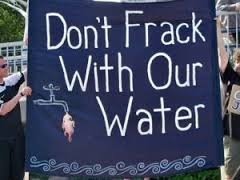
The day the polar bear beat the Wall Street bull
Yesterday was day two of the dynamic and energised protests against climate change in New York which saw several thousand activists take part in “Flood Wall Street.”
Read the latest insights and analysis from the experts at Oil Change International.

Yesterday was day two of the dynamic and energised protests against climate change in New York which saw several thousand activists take part in “Flood Wall Street.”

400,000 in New York. 40,000 in London. 30,000 in Melborne. 25,000 in Paris. Thousands others in some 2,700 events across the globe in over 150 countries.

On Sunday, hundreds of thousands of people are expected to take part in what the organisers are promising to be the largest climate march ever in New York.
Next week, on the 23 September, the United Nations will hold its most important climate summit for years in New York, which will attended by some 125 heads of state.

A three and a half year battle by activists to find out more details of BP’s secretive sponsorship deal with Britain’s iconic art institution, the Tate, will finally be resolved on Thursday this week.

The largest ever scientific study examining the overall health of people living near fracking wells in the US is being published today and once again it sends alarm bells ringing.

We can’t go South, we can’t go West, we can’t go East, so, hey, lets’ go North”. That is the latest thinking of the Canadians in their increasingly desperate attempts to export the dirty, carbon intensive tar sands from Alberta.

Yesterday over a hundred members and supporters of the UK-based art collective Liberate Tate carried out their latest art protest against the oil giant BP in the Tate Modern’s iconic Turbine Hall in London.

For years the oil industry has been lobbying the Obama Administration to lift the US export ban of crude oil, which has been in place since the Arab oil embargo of the 1970s. The calls have become greater as the fracking boom has led to a significant increase in domestic production.

n the blinkered rush to frack the globe - first in the United States, secondly in Europe and thirdly in the rest of the world - the oil industry always undermines the risks of the technology. But this brutal technique has a dangerous downside, ranging from air and water pollution, to the use of vast amounts of sands and chemicals. And then there is, of course, the huge volumes of water used in the fracking process.